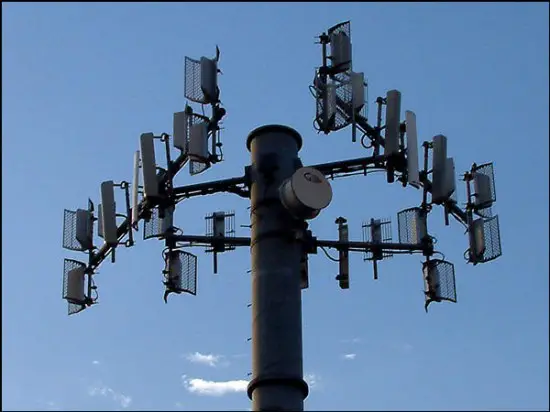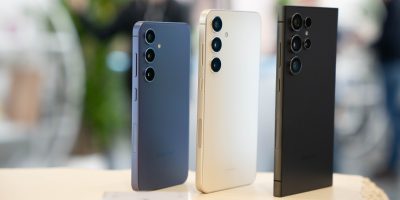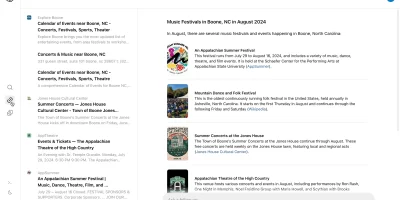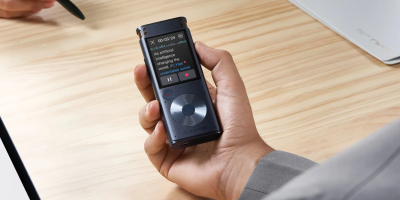Senators Amy Kobuchar and Al Franken from Minnesota and Senator Richard Blumenthal from Connecticut have proposed a bill to congress that would affect how carriers advertise their 4G service at least starting at the point of sale and extending to public material regarding their claims.
The bill would force carriers to be clear about what minimum and maximum network speeds their “4G” can potentially produce as well as details about realistic network reliability, coverage maps (mostly everyone has this), pricing, technology used and details about anything that may affect the performance of their 4G network.
For instance, Sprint would have to educate users on the WiMax technology and any conditions that may affect their use of the 4G network. We can think of at least five negative network conditions right off the bat from the Now Network, but that’s not what we’re here for at this time.
Ever since the ITC changed their standard for what could be considered a 4G network just to appease to North American carriers, these operators have been using general terms like “lightning fast” and “blazing fast” to describe their network. While they do offer public knowledge of their specific networks’ capabilities, some don’t actively advertise it – even at the point of sale.
All 4G networks certainly aren’t created equal. This was evident when AT&T and Sprint quickly committed to 4G LTE after the former tried to slide by with HSPA+ while the latter’s WiMax expansion has come to a complete standstill.
Beyond that, spectrum has a lot to do with 4G performance – anyone with Sprint service will tell you that getting 4G signal inside a building – even if you’re near a window – is a pain. With this bill, we’d like to see things like Sprint being forced to inform their consumers that 4G performance my falter inside buildings due to being on non-friendly spectrum. Read on for full press details.
Rep. Eshoo Applauds Senate Introduction of 4G Legislation by Senators Blumenthal, Klobuchar and Franken
Washington, DC – Today, Rep. Anna G. Eshoo (D-Palo Alto), top Democrat on the U.S. House of Representatives’ Energy and Commerce Subcommittee on Communications and Technology, applauded Senators Richard Blumenthal (D-CT), Amy Klobuchar (D-MN) and Senator Al Franken (D-MN) for introducing a Senate companion bill to the Next Generation Wireless Disclosure Act, which she introduced in the U.S. House in June.
“Consumers deserve to know exactly what they’re getting when they sign up for a two year wireless data plan,” said Rep. Eshoo. “Consumers want faster and faster phones, and demand for 4G is only going to increase. But they also deserve to know the truth about the speeds they’re actually getting. Wireless companies advertise 4G service as ‘lightening fast’ and ‘super-charged,’ but that’s not always the case. My legislation is simple – it will require truth in advertising.
“I’m proud that Senators Blumenthal, Klobuchar and Franken have introduced this legislation in the Senate. With their help, we can make sure that consumers have all the information they need to make an informed choice about which wireless data service to purchase.”
Senators Blumenthal, Klobuchar and Franken introduced the legislation earlier today in the Senate, and released the following statements:
Sen. Blumenthal said, “As consumers become more reliant on Internet capabilities from their mobile devices, it is essential that they have the most accurate and useful information about the products and plans they are purchasing. Whether they are using a tablet or a smartphone, wireless users deserve an honest description by companies of product capabilities. I’m proud to introduce the Senate companion to the bill that Representative Eshoo has worked so tirelessly on in the House to help bring fairness and certainty to consumers.”
Sen. Klobuchar said, “When consumers purchase a 4G wireless plan, they have the right to know exactly what they’re getting for their money. This legislation will help ensure that wireless companies are honest about their product’s capabilities so consumers can get a fair deal.”
Sen. Franken said, “While wireless data makes it easier for people all over Minnesota to do their jobs and to access music, movies, and books from virtually anywhere, it’s important that consumers know what they’ll be paying for when they sign a contract. Wireless providers need to make sure their customers can count on the speed, reliability, and the price they were promised when they signed up. And if they can’t fulfill their promise, they need to be held accountable.”
As it stands there is no standard definition for 4G wireless broadband internet, allowing the four major wireless companies in the United States to advertise several different technologies as “4G,” despite vastly different speeds based on their wireless provider and location. The Next Generation Wireless Disclosure Act would require wireless companies to disclose the details listed below in their marketing and advertising at the point of sale and in all billing materials.
• Guaranteed minimum data speed
• Network reliability
• Coverage area maps
• Pricing
• Technology used to provide 4G service
• Network conditions that can impact the speed of applications and services used on the network
The legislation will further require the Federal Communications Commission (FCC) to evaluate the speed and price of 4G wireless data service provided by the top ten U.S. wireless carriers. This will provide consumers with access to a side-by-side comparison in their service area. For full background on Rep. Eshoo’s Next Generation Wireless Disclosure Act (H.R. 2281), please click here. Rep. Eshoo’s legislation has been endorsed by several groups, including the Consumers Union, the National Consumers League, New America Foundation, the Media Access Project and Public Knowledge. A copy of the bill can be accessed here.
Eshoo serves as the Ranking Member on House Energy and Commerce Committee’s Communications and Technology Subcommittee.











Yeah guys don’t worry about the economy or jobs. I am really pissed that I I wasn’t fully informed on 4G…
Clearly they ARE thinking about jobs…or at least how we can send more overseas. Here’s a great example of recent bipartisanship that didn’t make the major news: http://fdlaction.firedoglake.com/2011/10/13/that-giant-sucking-sound/
I don’t get it.
We have the general public who doesn’t care what kinds of speeds they get, what kind of phone they have as long as it can do xyz.
Then we got the smartphone community, who can tell you how much RAM a phone has, what kind of flash their camera on the phone has, what kind of spectrum their carrier operates on, etc.
And I’m guessing that most people, in America who are in to get a smartphone, most likely have internet available and have probably heard of Google.
Worrying about that 1% seems slightly ludicrous.
Why don’t they stop the cell phone providers from charging monthly charges to enable a feature of the phone not their service? Verizon already charges you for usage, so why should they charge you an extra fee for mobile hotspot. At least AT&T gives you some extra GB for using mobile hotspot.
Because that’s a legitimate charge. Tethering increases the amount of network usage, which if everyone is doing it will bog down the system and sully the customer experience (not to mention cost them money), so they charge a fee for tethering to reduce usage and recoup added expenses. Just because you don’t like it and wish the function were free doesn’t mean the government should force a private company to provide it for you. Pay for what you get.
Tethering my Xoom to my Bionic increases network usage?
Are you retarded? I pay for 5 gigs of data and I will do whatever the fuck I want with it. No fucking way I’ll pay even more so my network provider can dictate how i use the data I already pay for. Your post was stupid as hell.
Legitimate charge? Do you work for Verizon? I agree tethering will add to network usage; but if I am paying for 2GB/month, I should be able to use that 2GB any way I want. If I go over 2GB, Verizon will charge me for that. How is Verizon losing anything here? They are double charging for service.
You missed the main point. Tethering/hotspot is a feature of the phone not Verizon’s service.
They can multi-task. Now as far as these so called 4G speeds are not. I would rather have them call their data networks advance 3G or 3G+. When ph ok nes and tablets can get a minimum of 21 mbps and no lower and the max is 80-100 mbps on a robust data network, then we.can call it 4G
I can see the point of this proposal. Companies sell on what there service can do and most of the time they do not deliver. However, they still bill you the same every month and you get no refund if you are dissatisfied. I feel that if you have to go into a 2 year contract with a company then they should be obligated to inform you about what type of realistic service you are going to receive.
Now, is this topic more important than the economy, No! But it indirectly effects it as well.
I think Sprint should just have to release how bad their data speeds are. It’s embarrassing when my gf sits next to me opening up different sites as we discuss the news and she asks if I have read something yet and I say…I’m still loading.
2G barely gets 120Kbps. 3G used to barely get 1.5Mbps. My T-Mobile Galaxy S II (which very surprisingly is not even called a “4G”) hit 11Mbps just this morning on my way to work.
No matter what VZW is doing on their LTE network, I think its safe to say that hitting 10 meg (on TMO) is a “4G” network. If VZW’s LTE can hit 20-30 then good for them. They just have a BETTER 4G network.
VZW/ATT/Sprint should band together and just call their devices and networks “LTE” and drop the whole 4G thing so that way there is no confusion about how much better LTE is and can be in comparison to what Sprint/TMO/ATT consider to be 4G. Otherwise we’ll be saying “5” prematurely
4G is defined as being capable of 100Mbps, they are all fibbing.
” In 2009, the ITU-R organization specified the IMT-Advanced (International Mobile Telecommunications Advanced) requirements for 4G standards, setting peak speed requirements for 4G service at 100 Mbit/s for high mobility communication (such as from trains and cars) and 1 Gbit/s for low mobility communication (such as pedestrians and stationary users).[1]”
Source: http://en.wikipedia.org/wiki/4G
and in the same article..
.
“On December 6, 2010, ITU recognized that current versions of LTE, WiMax and other evolved 3G technologies that do not fulfill “IMT-Advanced” requirements could nevertheless be considered “4G””
Boom.
ITU’s former requirements were nonsense, anyway. Like PimpStrong said, 2G didn’t even get 0.5Mbps (3G is usually under 5Mbps, currently). So 4G should be “100”Mbps?
I agree with you completely, but I wanted to add that i hit 22 megs on the amaze at the tmobile store by my house
Daaaaaaamn!
….. calling all of them LTE would be like calling HDMI and Component the same thing. Their different technologies, and I don’t think its safe to say 10 mbps is 4G, I personally think we should have left it at the old 1 gbps requirement, and LTE is the only thing I think is close to 4G, the rest of the HSPA+ networks are just smaller speed increases so carriers can call the network 4G.
Edit: Realized I missed this, the reason 2G, or 3G never seemed like they met the requirement was because they were required to meet theoretical speeds, not real world speeds.
How would calling the 3 LTE networks “LTE” be comparable to HDMI and Component?
I’m not talking about calling HSPA+ an LTE network.
Thought you were talking about current networks that are up? AFAIK sprint doesn’t have LTE yet.
I just found out that Atnt turned on their LTE, so half my bad.
It’s cool man and I knew Sprint hasn’t started their LTE net yet but they are fully committed now.
@Tarik- You do realize that more people buy smartphones than feature phones, don’t you? I think the last tally was 53% to 47%.
53% is a whole lot bigger than the 1% you’re talking about. So yes, the smartphone community is important.
More people buying smartphones != people giving a damn about what their network is capable of.
Come to think of it, I know plenty of people that have gotten Android phones recently and they’re just excited about having a touchscreen phone. They have no clue what they have (one of them has a Sensation) they just know that it powers on, plays games, and is a touchscreen phone.
I think you missed my point.
I was trying to say that a very little percentage is uniformed.
You got the informed customers (us) and the uninformed customers that generally don’t care what kind of specs it has, they just want something that “powers on, plays games and is a touchscreen phone” as gohaus stated below me.
I’m not sure that there are that many uniformed customers that actually care about the specs, and if there are, those specs are not really hidden. They’re available everywhere online.
No way this bill makes it through with the “guaranteed minimum data speed” provision, unless it can be circumvented by simply not showing the ‘4G’ icon when it can’t be accomplished or something.
I never refer to any carrier’s network as “4G”. It’s meaningless; when the industry moved to 2G and 3G, the criteria was clearly defined. “4G” has lost all meaning; it’s nothing more than marketing. Sprint just went and called WiMax “4G” on their own so they could say they were the first in the US, while there are some 3G systems that are at least equal to WiMax. When talking about carriers and networks, I, personally, simply call them “Verizon’s LTE”, “Sprint’s WiMax”, “T-Mo’s HSPA+”, etc.
I think it would simplify things sufficiently for advertising purposes if the carriers just refer to their networks as “LTE10-20”, “WiMax3-7”, or “HSPA+(whatever)”. Adding a rough estimate number, such as “HSPA+ 42Mbps” can be helpful, but I think something along the lines of, say, “Verizon LTE 10-20” is more reasonable for advertising purposes.
Although I average ~25Mbps on VZW’s LTE in my area, there are times when it dips down to ~8-10, and other times where I’ve had over 30Mbps, thus “LTE 10-20”.
Just my 2¢
Ah, I love the wording!
“The bill would force carriers to be clear about what minimum and maximum network speeds their “4G” can potentially produce as well as details about realistic network reliability”
If you daisy-chain 5 units together you van “potentially” achieve 250/mbps. This sounds like a huge waste of time!
AT&T is going to loose many, many sales if this bill goes thru. Their claim of 4G is so bogus. They have only a few areas with the advanced back haul set up, they won’t tell you where if you ask them. I have called so many times to ask if and when the advanced back haul will be set up in the Boston area and all I get is bull thrown at me. Frig AT&T.
Hey you speak the truth but for whatever reason at&t consistently has had the lowest churn and they retain more customers than any other wireless carrier. I personally think companies like t-mobile are doing great things for customers like scaling hspa+ up to 42mbps all at a fraction of the cost of what at&t charges people, yet people sign up for at&t in droves and not only for just the iphone. It really doesn’t take much research to find out at&t’s network is running over capacity. The public is so misinformed it’s ridiculous.
@jaylanPHNX, How about cell providers increase their bandwidth to handle the increased traffic. Charging you twice for data you have already paid for is nothing but a ripoff. Selling smartphones and then not letting you get full use of them is not acceptable either.